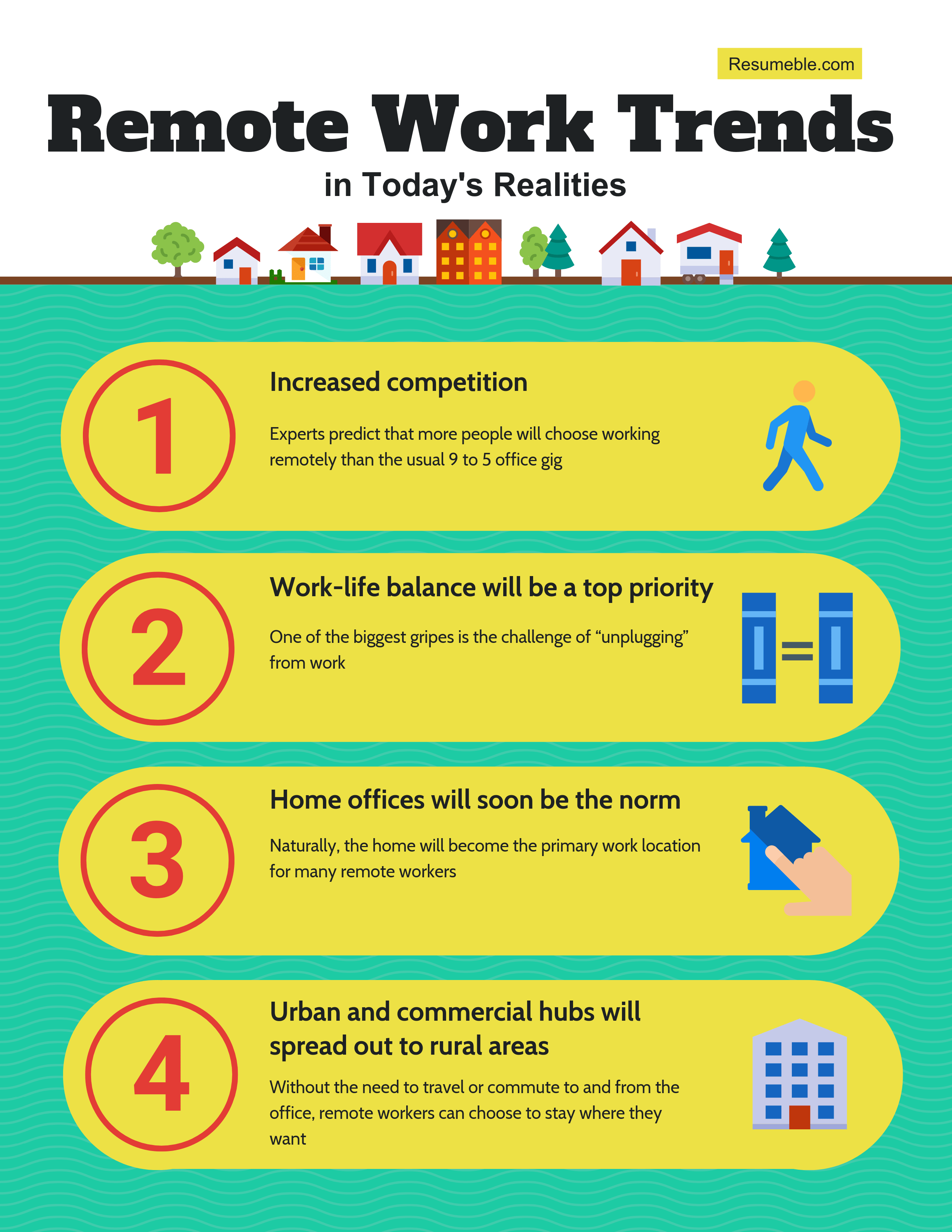The Effect of Remote Work on Local Real Estate Markets

The Remote Revolution: How Working From Home is Reshaping Local Real Estate Markets
The pandemic ushered in a seismic shift in the way we work. Millions embraced remote work, transforming traditional office environments into kitchen tables and home offices. This dramatic change, with its long-term implications, is now leaving its mark on local real estate markets around the globe.
The Great Exodus: Leaving Cities for the Suburbs and Beyond
The ability to work remotely has liberated many from the constraints of urban living. City dwellers, seeking more space, affordability, and a change of pace, are flocking to suburban and rural areas. This “exodus” is driving up demand and prices in smaller towns and outlying communities, while cooling off some urban markets.
A New Era of Housing Preferences:
The rise of remote work has also reshaped housing preferences. Spacious homes with dedicated work areas, large yards, and access to outdoor amenities are now highly sought after. This shift is impacting housing construction and renovation trends, favoring properties that cater to a new wave of home-based professionals.
The Rise of the “Zoom Town”:
Certain locations, often characterized by lower cost of living, high quality of life, and strong internet infrastructure, have become particularly attractive to remote workers. These “Zoom Towns,” like Boise, Idaho, and Asheville, North Carolina, are witnessing rapid growth in population and property values.
Navigating the New Landscape:
The impact of remote work on local real estate markets is complex and multifaceted. While some areas experience a surge in demand, others grapple with declining prices due to reduced office space needs. This dynamic landscape presents both challenges and opportunities for investors, buyers, and sellers alike.
Key Takeaways:
- Remote work is driving a significant shift in housing preferences, favoring larger homes with dedicated workspaces and access to outdoor amenities.
- The “exodus” from urban centers to suburban and rural areas is impacting both housing demand and prices.
- “Zoom Towns” are experiencing rapid growth due to their appeal to remote workers.
- The impact of remote work on local real estate markets is dynamic and evolving, requiring careful analysis and adaptation.
The Future of Local Real Estate:
As remote work continues to gain traction, its impact on local real estate markets will only deepen. Adapting to these changes will require a nuanced understanding of evolving housing preferences, shifts in population dynamics, and the unique characteristics of individual locations. The real estate landscape is being reshaped by the remote revolution, offering exciting opportunities for those who can navigate its complexities.

